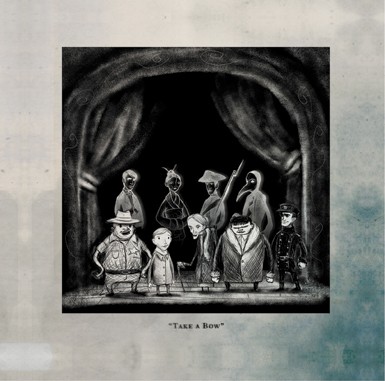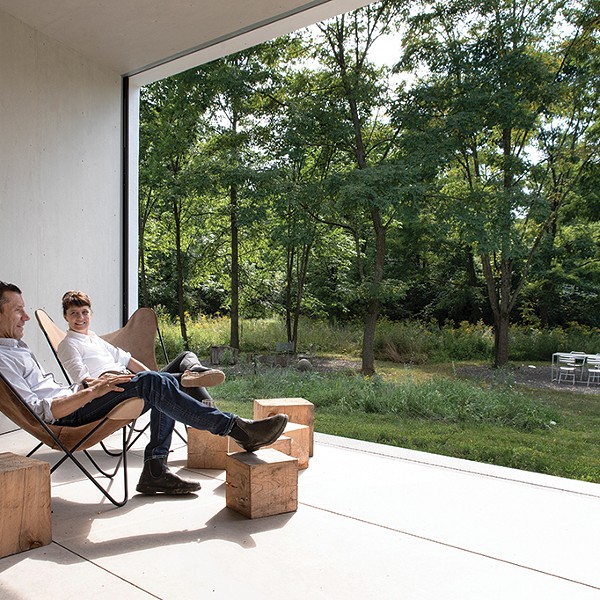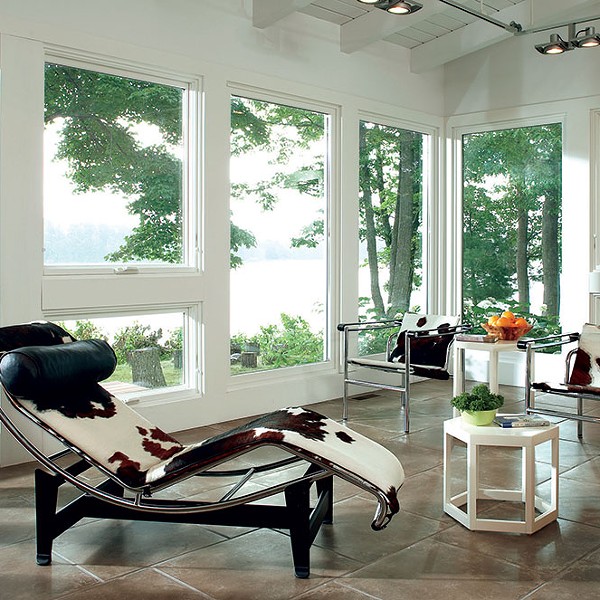Singer-songwriter Duncan Sheik’s pop-chamber confessionals (echoing Nick Drake, edged in Rufus Wainwright, and cured in Jeff Buckley) have not only achieved mainstream radio success but critical respect as well. It was fitting that Sheik’s high-drama musical poetry be applied to theater, but few expected the resounding success of 2006’s “Spring Awakening,” a brash and poignant work (with Steven Sater) of sexual stirrings in 19th-century Viennese schoolchildren. The Tony Award-winning Broadway musical marked a new path for Sheik, who is concurrently developing three new works: “Nero,” a gleefully decadent take on the ancient ruler; an adaptation of Hans Christian Andersen’s “The Nightingale,” slated to open next year at San Francisco’s American Conservatory Theater; and the baroque ghost story “Whisper House,” slated for Vassar College’s Powerhouse Theater this month on July 10 and 11.
Collaborating with librettist Kyle Jarrow and director Keith Powell (Toofer on TV’s “30 Rock”), composer-lyricist Sheik has fashioned a score knowingly histrionic but engaging in its melancholy. (He recorded the 10-song score on CD this past January.) “Whisper House” is anchored in vintage artifice, just begging for a film adaptation by director Guy Maddin. The tale takes place on the Maine seashore at the height of World War II. Young Christopher has been sent to live in a lighthouse with his Aunt Lilly. As he navigates his new world, the boy struggles to understand his eccentric aunt, her tightlipped Japanese handyman, and the relentless wailings that come from a gathering of ghosts calling beyond the shoals.
In early June, while on a yoga retreat in Cannes, France, Sheik spoke about “Whisper House,” its fitful journey from the page to the stage, and why all art must contain hope. “Whisper House” will be performed July 10 and 11 at the Powerhouse Theater, Vassar College, Poughkeepsie. $25. (845) 437-7235; www.powerhouse.vassar.edu.
[The following is the original, unedited transcript.]
rewarding; it allows them to see where a work can be improved. What
was accomplished last year for your work-in-progress "Nero" by mounting
it at Powerhouse?
Sheik: An enormous amount was accomplished. We restructured the
piece; I know that I wrote a lot of new songs even in that short
period of time. Steven [Sater] rewrote a lot of the text of the
show, and I think we all had a better conception of what the piece
was ultimately supposed to be about. After the workshop, actually, we
were able to get together and, given what we had experienced there
for that couple of weeks, think about what the next iteration of the
piece would be. That iteration will probably be the real staged
production. So, it was great to figure out the things that were wrong
with it and generally it improved the piece greatly.
Chronogram: "Whisper House" was originally supposed to have its debut
at a theater earlier this year, but that was cancelled due to
financial issues –
Sheik: Well, it’s kind of nebulous. We were commissioned by a theater
in Stamford, Conn., and we wrote the piece and – Frankly, I don't
think that particular theater had the money to produce the show in
the first place. So there was a little bit of hoping against hope
that we could do it there, which wasn’t going to happen. Then we were
going to do it at another theater in Maryland. It wasn’t really the
right fit for them ultimately either. But Keith, Kyle, and I – the
collaborators on the piece – we all –
[Cellphone call drops. Interviewer redials.]
Chronogram: Where are you currently?
Sheik: I’m slightly embarrassed to say that I’m in the south of
France right now. I’m actually in Cannes.
Chronogram: But you missed the film festival?
Sheik: I was actually here the last day. I was kind of in the
neighborhood but I wasn’t attending any events. So I was around. I’m
here in the south of France for a kind of yoga retreat for the lack
of a better word and we just came to the beach for the day.
Chronogram: That sounds fantastic.
Sheik: No complaints.
Chronogram: You were talking about the Maryland theater.
Sheik: So we were commissioned by the theater in Stamford. Conn. Then
there was a theater in Maryland that was going to do it. Ultimately,
neither one really had the resources to do this kind of piece. So
ultimately there’s a theater in San Diego called The Old Globe and
it’s a great institution. They’ve brought many shows to Broadway in
the past decade. They got really excited about it, so we’re going to
do the show there in late January. But we’ve never even done a full-
blown-out workshop, ever of this piece. We did a little workshop in
New York City about a year ago – a four-day thing. So to be able to
go to New York Stage & Film and really look at the beast and fix some
things that are inevitably wrong with it, that’s really valuable and
important.
Chronogram: Giving "Whisper House" a merciless appraisal, what is it in
the show that still has to evolve?
Sheik: Here’s the thing: With a piece of musical theater, obviously
there’s the text and the songs themselves and the lyrics. There’s the
visual aspect and the directorial aspect of what's going on. We have
ideas about this and Keith has strong ideas about how he wants to
direct the piece. But it’s never been staged before, so until you put
it up on its feet and see it in that way, with more of an eye to what
the design is going to be, and what the tone and what the mood is
going to be, these are all like just huge question marks and they’re
big questions we haven't answered yet. And haven't had the
opportunity to. So that’s why this is a really good opportunity.
Chronogram: But you were you able to work out some of the structural
issues of "Whisper House" by recording the songs on a CD? Do you feel
there will still be some evolution of the score?
Sheik: I think so. Keith and I had a conversation a couple of weeks
ago. There are two songs on the record currently where we both kind
of felt like, Well, they might work in the show but they may well not
work in the show. In a certain sense, we didn't really realize they
were integral to the storytelling or in some way if they perhaps
stop the narrative flow more than the piece wanted. So there may be
songs that aren't in the show. There may be other music that is
written. Probably what’s going to happen – or what I’m hoping will
happen – is that some of the songs will be deconstructed in some way
in other parts of the show and used as underscore. This piece is a
very different animal with respect to other pieces of musical theater
because there’s only ten songs and you have very long stretches of
scene and text in between songs. So it’s really more like a play that
has songs interspersed within it. I think we need to figure out how
to make that work for an audience.
Chronogram: I have fallen in love with Klaus Lyngeled’s illustrations
for the CD booklet and the video for Earthbound Starlight. Will these
be incorporated into the stage production?
Sheik: I really hope so. Right off the bat, one of the very simple
things we talked about is using the video for Earthbound Starlight –
which is really kind of like --
[Cellphone call drops. Interviewer redials.]
Sheik: This just might be the nature of the beast on international
calls.
Chronogram: That’s okay. You were talking about Klaus’s work and how
it might be incorporated into the stage production.
Sheik: We had this idea of using the video from Earthbound Starlight
as the prologue of the play itself – which is really what it is. I
think, ultimately, with regards to Klaus and his animation, what I
hope to do, at the end of the day, is to create an animated feature
film that will be in the style of his animation. But these are things
that would go hand in hand with the stage production and the record
itself. Maybe even an illustrated book – the "Whisper House" book. I
kind of look at these things like: here's this story, here are these
pieces of music, and you’ve got various media that you can tell the
story in. And why not try all of them and see what works the best?
And hopefully, a few of them are effective.
Chronogram: Will there be a multimedia approach to the stage
production? Has Keith incorporated --
Sheik: I think that that aspect of it will exist later when we do
the actual production in San Diego. At New York Stage & Film, it’s a
great environment and they have great resources there, but you really
don't have time to do costumes or extensive lighting or even that
much staging. So, it’s really more about your continuing to work out
structural issues and just issues of what the material is and
possibly tweaking that and fixing that so you’ve got a really good
skeleton when you go into it where you have a real production.
Chronogram: Did you have a role in the casting?
Sheik: I cast the band and the two singers – I didn’t really cast
them, they're just my coterie of musician friends that I work with.
The actors in the scene, they don't sing any of the songs, they just
act in the scenes. The people singing the songs are these ghosts, and
the ghosts are also the musicians who are playing the songs. So the
ghosts are the Greek chorus, for lack of a better word, that are
commenting on what’s going on in the action of the human world
they’re observing.
Chronogram: From the start, you recount the misery of each character,
in the song "It's Better to be Dead." Are you sounding from the
beginning a note of pessimism, of inevitable tragedy, or is there hope?
Sheik: [laughs] I think there certainly is hope in the piece
ultimately. I don't know. Like, I love Lars von Trier, but I don't
like this idea of hopeless art. That's hard for me. But I think that
this idea that we’re in the first song and you're describing the
pathos of these characters, it's from the perspective of this
slightly sardonic ghost who’s plainly cynical. And he’s also singing
this stuff with a little bit of a wink. You're also meant to be
poking fun at the human frailty of these characters. Because they're
ghosts. In some way, it behooves us to feel above it all. They don't
have the same agency that human beings do. It's kind of like they're
sour grapes.
Chronogram: They sing out to the little boy Christopher, but they
don't take any role in the way the drama unfurls?
Sheik: No, that’s the thing. Like I said, they don't really have
agency per se. They affect Christopher – or we think they affect
Christopher. I mean, here's the thing; here’s the $64,000 question:
Are ghosts real? Or are they a manifestation of Christopher’s fears?
What are they? That’s the question we want people to be asking
throughout the piece.
Chronogram: But you don't answer it yourself.
Sheik: That’s no fun. [laughs] I’d much rather like the audience to
argue and wonder and be curious about that.
Chronogram: You take us to a lighthouse in Maine. You’ve said that
growing up in Hilton Head has insured that in you. But what other
aspects of the narrative – where do they originate?
Sheik: The story is Kyle’s story; he wrote the book. You'd have to
ask him about some of the specific things that influenced him. For
me, my connection to it was generally this idea of lighthouses and
the mood of the lighthouse and this thing of just telling ghost
stories and the kind of pre-adolescent fun of being freaked out or
spooked by apparitions in general. That’s a universally fun material
to use as an environment for a story.
Chronogram: Working with Kyle and working with Steven – what
different parts of your craft or your psyche did Kyle draw out?
Sheik: Here's the thing: On a very basic level, when I’m working with
Steven, he writes the book and the lyrics. In this instance, I wrote
the lyrics of the show and I would send them to Kyle and some of
those things he tweaked and adjusted because he’s an excellent
lyricist and songwriter himself. In a certain way, we were operating
in more separate universes. I think that working with Steven, Steven
has such a particular lyrical aesthetic. When I work with him, he
starts with the lyrics and he sends me the lyric and I set that to
music. Whereas, working with Kyle, it's kind of the opposite. I
would write the song – write the music and write lyrics – and then
Kyle would respond to that and it would be adjusted from there. In
some ways it’s the opposite kind of process. But they're both very
smart guys with very good ideas. Frankly they have a different
aesthetic and that’s cool, because it’s what makes the world go
round. [laughs]
Chronogram: What did you learn from the creation and execution of
"Spring Awakening" that you either tried to impart to this project or
tried to avoid?
Sheik: In some ways, we were trying to push the envelope further away
from traditional musical theatre even than "Spring Awakening." Kyle
writes musicals and he’s worked in musical theater, but he’s a young
progressive kid from Yale. He is someone who has dealt mainly with
straight plays. First of all, this idea that the actors who are in
the scenes of the play, they're never singing he songs – this is
already a pretty big break from traditional musical theater. There’s
this idea of having a play and within the midst of this play there’s
also a rock concert that happens. And there are two different
universes. There’s definitely an overlap with "Spring Awakening" in
that respect.
Chronogram: Your work in theater has taken us time-traveling, from
19th century Vienna to 1940s coastal Maine. In what era would Duncan
Sheik the singer-songwriter like to spend some time?
Sheik: [laughs] I’ve been in Europe for a few weeks and I spent a
little time in Italy while I was here, specifically in Florence and
then in Venice. I was there for Bienniale. I love the idea,
especially in Florence, of hanging out with Medicis and the Pittis
[wealthy Florentine merchant family]. As a musician, you'd have no
money and you’d ask these people to be your patrons and they’d just
pay you to write songs for them. [laughs] I love that idea.
Chronogram: Where is the musical "The Nightingale" right now?
Sheik: It's very exciting. It's also been a long, winding road,
finally we’ve penciled in a slot at ACT in San Francisco. James
Lapine is directing. Artistic director is very excited. Working with
The Dodgers, who are great producers. We're all assuming this is
going to come together 18 months from now. We’re trying to put
together one more workshop before then. The main thing is we want to
get the show up in that 2010-11 season in San Francisco. I’m just
going to operate as if that’s going to happen. And we’ll see how it
goes.


















